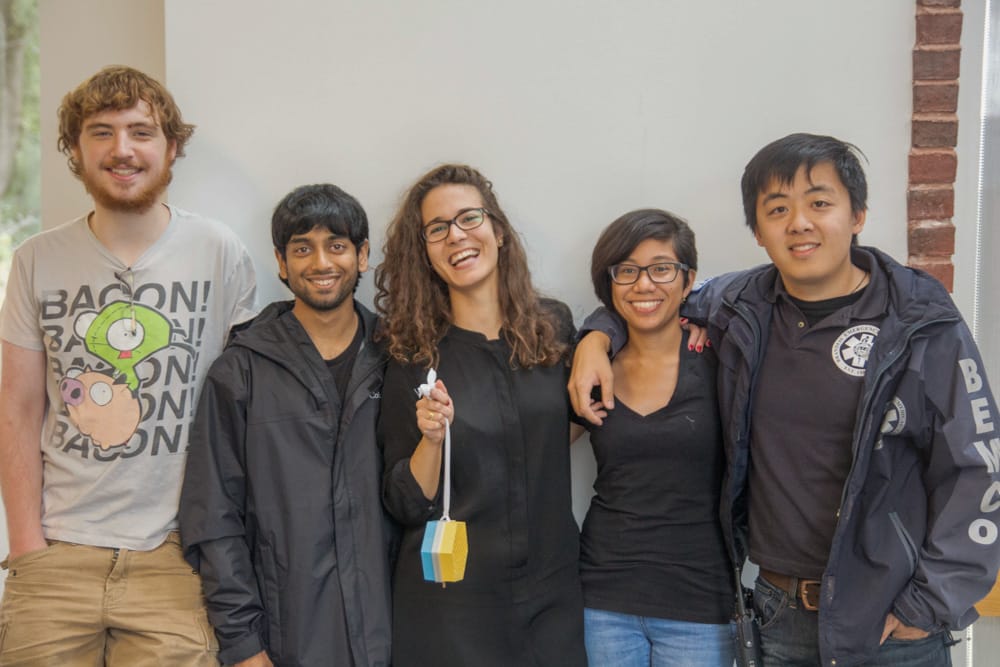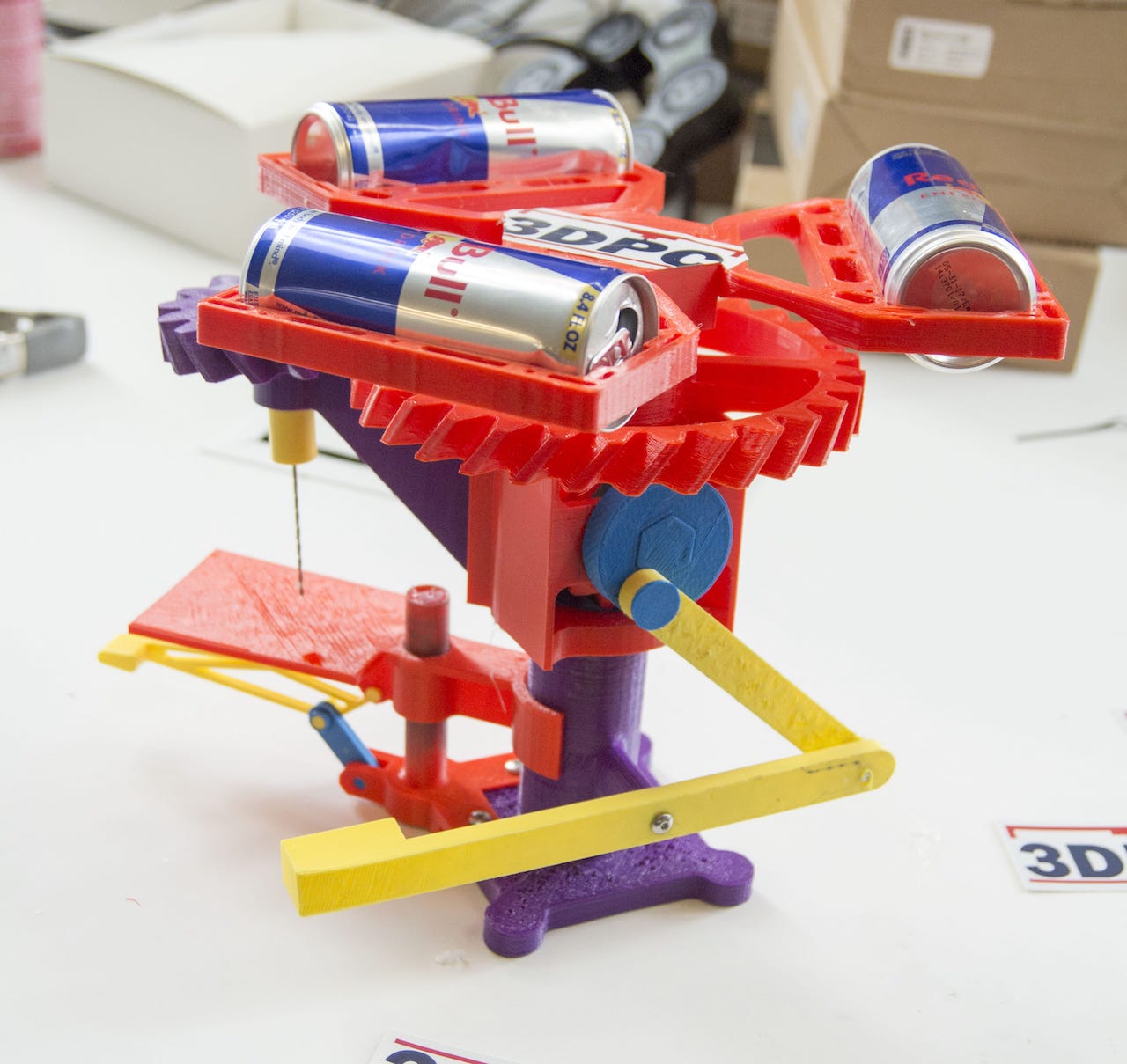
Brandeis University’s “Deis3D” 3D printing club is once again producing a “Printathon” for students. Why doesn’t every university do this?
Deis3D is a pretty extensive operation, providing free access to over 60 different types of 3D printers for both staff and students at the institution. As you might imagine, there are a lot of people at this organization who know how to use them.
Thus they offer a “Printathon” annually, and we wrote about the 2015 event here. The event is a 24 hour challenge to solve “practical problems” using 3D printing and related making skills.
Participants are provided with a theme for the event, and they’re off to build solutions. Typically students team up in groups ranging from 2-6 people in size. Apparently last year the event drew some 60 makers.
The event seems to be well organized, with an emphasis on productivity and safety (ABS plastic and anything with “strong smells” like acetone will not be permitted.)
The event takes place March 25-26 and will include prizes awarded by a panel of industry judges.

This is obviously a regional event that may be of interest only to readers in the vicinity – who happen to be students. But I think there’s a bit more to the story here.
As we all traverse the 21st century, it’s becoming more evident that the future will include a strong role for designers, whereas many traditional roles in society will become automated, both physical and information-based occupations. But imagination will never be obsolete, and the machines of the future should be fed designs by highly creative people.
Highly creative people that come from educational institutions of today.
That’s why I support this event: it provides a focus for design-minded people to explore their capabilities and grow their confidence. Who knows, some of these people may produce startling new things in the future.
What I’m wondering is why this type of event doesn’t take place everywhere? Organizing a printathon should not be that challenging and offers so many benefits to not only the students but the rest of us in the future.
Via Printathon

